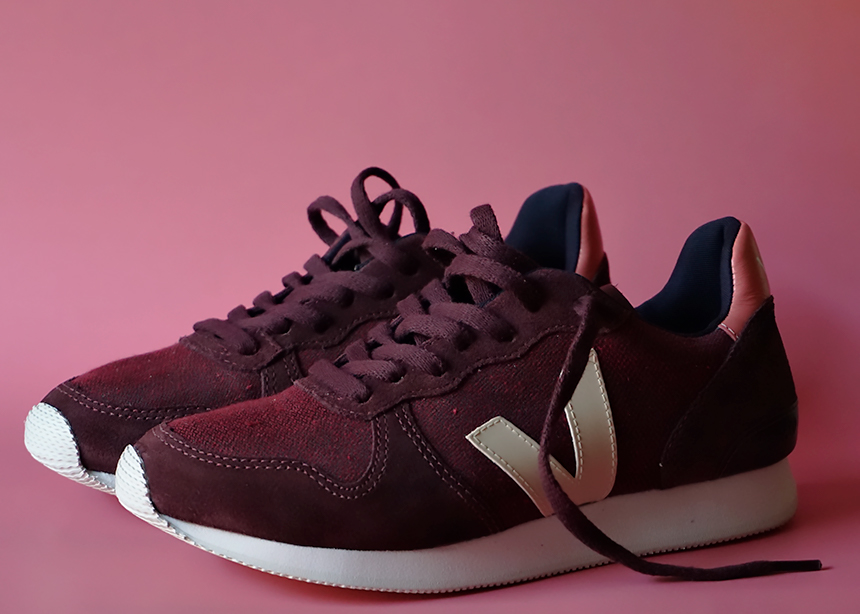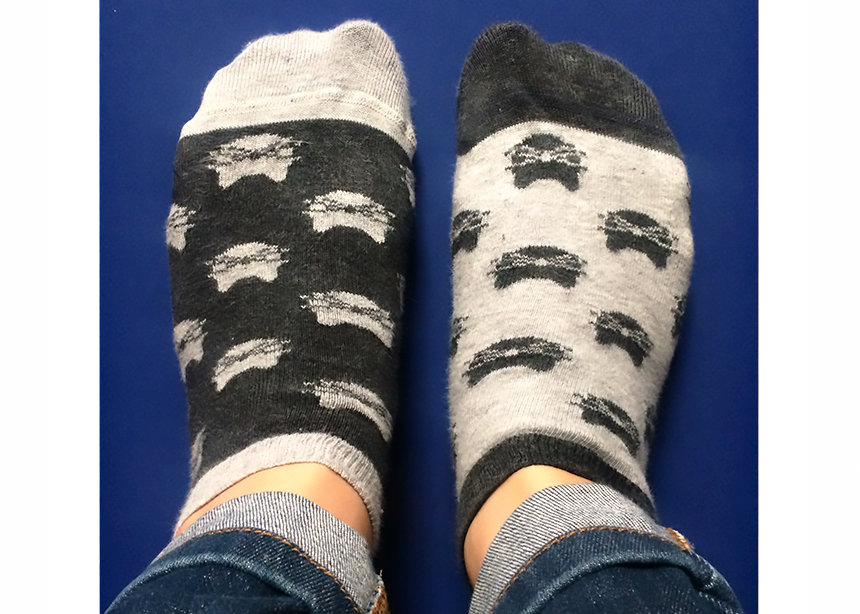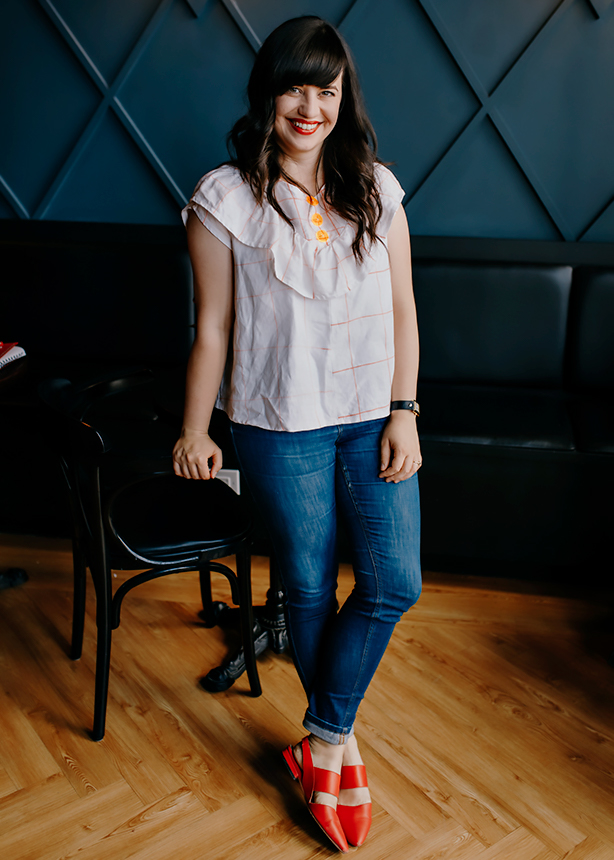If you wear clothes, then you need to care about how they were made and who made them. Even if you aren’t interested in “fashion.” Even if it means giving up your favourite stores and finding new ones. Even if you think it won’t be available in your budget, style, or size (it is).
How do you get over these hurdles? Connect it with something you’re already passionate about.
You believe that workers should earn a living wage
In 1901, Americans spent 14 percent of their household income on apparel, according to the U.S. Department of Labour. By 2003, it had shrunk to 4 percent, and yet we are buying more clothes than ever. The decreasing cost of clothing isn’t coming out of the CEO’s salary; it’s being squeezed out of the most vulnerable workers. As journalist Lucy Siegle said, “Fast fashion isn’t free. Someone somewhere is paying.”
What to do:
- Buy fair trade or B Corp certified. You have probably stumbled across a fair-trade symbol before, maybe on Ben & Jerry’s ice cream or your Patagonia fleece. Fair trade certification means that the garments were made in safe factories where the workers earn a living wage, often more than what the country legislates. Similarly, B Corporations are certified to “meet rigorous standards of social and environmental performance, accountability, and transparency.” There are also brands that follow these principles without certification, but this requires research. Try: Patagonia, Ali Golden or Arturo Denim.
You are vegetarian
Vegetarian or not, leather is a big polluter. Most leather is tanned using chromium, an extremely toxic chemical, and its waste often flows directly into waterways damaging the surrounding environment.
What to do:
- Buy non-plastic leather alternatives. There are many plant-based leather alternatives, like Piñatex, made from pineapple-leaf fibre, and cork, waxed cotton, recycled rubber and banana trees. People are even starting to make leather-like goods from the bacteria-yeast skin that forms on top of kombucha ( a fermented black or green tea drink). Try: Nae Vegan Shoes, Ethletic or Allbirds.
You buy organic veggies and farm fresh eggs
Cotton accounts for about 2.4 percent of the world’s farm crops, yet uses 16 percent of the insecticides, according to the Pesticide Action Network. If you’re thinking, “Food goes inside my body and clothes are just on the outside,” remember that your skin is your body’s largest organ.
What to do:
- Buy organic cotton. Look for organic cotton certifications like Global Organic Textile Standard (GOTS) and Oeko-Tex. Try: Pact, Eileen Fisher or Rapanui.
You are a card-carrying feminist
Women make up 85 percent of the fashion industry workforce, so improving the working conditions of fashion production workers has a huge impact on the lives of women throughout the world.
What to do:
- Buy from companies that actually support women. There was an uproar when Beyoncé released her Ivy Park clothing line because the clothes, emblazoned with empowering slogans, were produced in exploitative Sri Lankan sweatshops. Feminism isn’t just a message. If you want to live out your feminism, it needs to be built in from the earliest stages—for the most vulnerable women in the chain. Try: Sseko, The Outrage or Kirrin Finch.
You minimize your carbon footprint
You ride your bike to work, use reusable alternatives to plastic wrap and bring your travel mug to the coffee shop.
What to do:
- Mend your clothes. Extending the life of clothing reduces the amount that gets made in the first place and the amount that ends up in the landfill.
- Buy second-hand or Tencel. If you are shopping new, opt for Tencel, which is known as the world’s most sustainable fabric. For second-hand clothing, try your local MCC thrift store, Encircled, Preloved or thredUp.
Purchasing ethical and sustainable garments will probably affect how—or how often—you shop for clothes, so it’s okay to tackle one thing at a time. But slow fashion isn’t just about buying stuff. A lot of the time it’s about wearing what you have and making it last. You can do that right now.
Elise Epp is a graphic designer and the Manitoba Fashion Revolution coordinator. She lives with her two cat children, Maud and Felix, in Winnipeg. She grew up attending Camrose Mennonite Fellowship in Alberta.
Further reading:
Join the (fashion) revolution
Shopping: yet another way to give
I am from the Mennonites










Leave a Reply
You must be logged in to post a comment.